Painted Lady
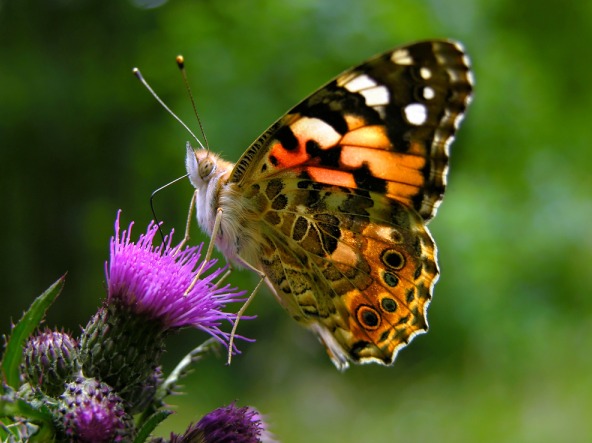
In a May 2013 paper, researchers at the University of Manchester revealed stunning 3D images of the metamorphosis of the painted lady butterfly, Vanessa cardui.
CT Scanning
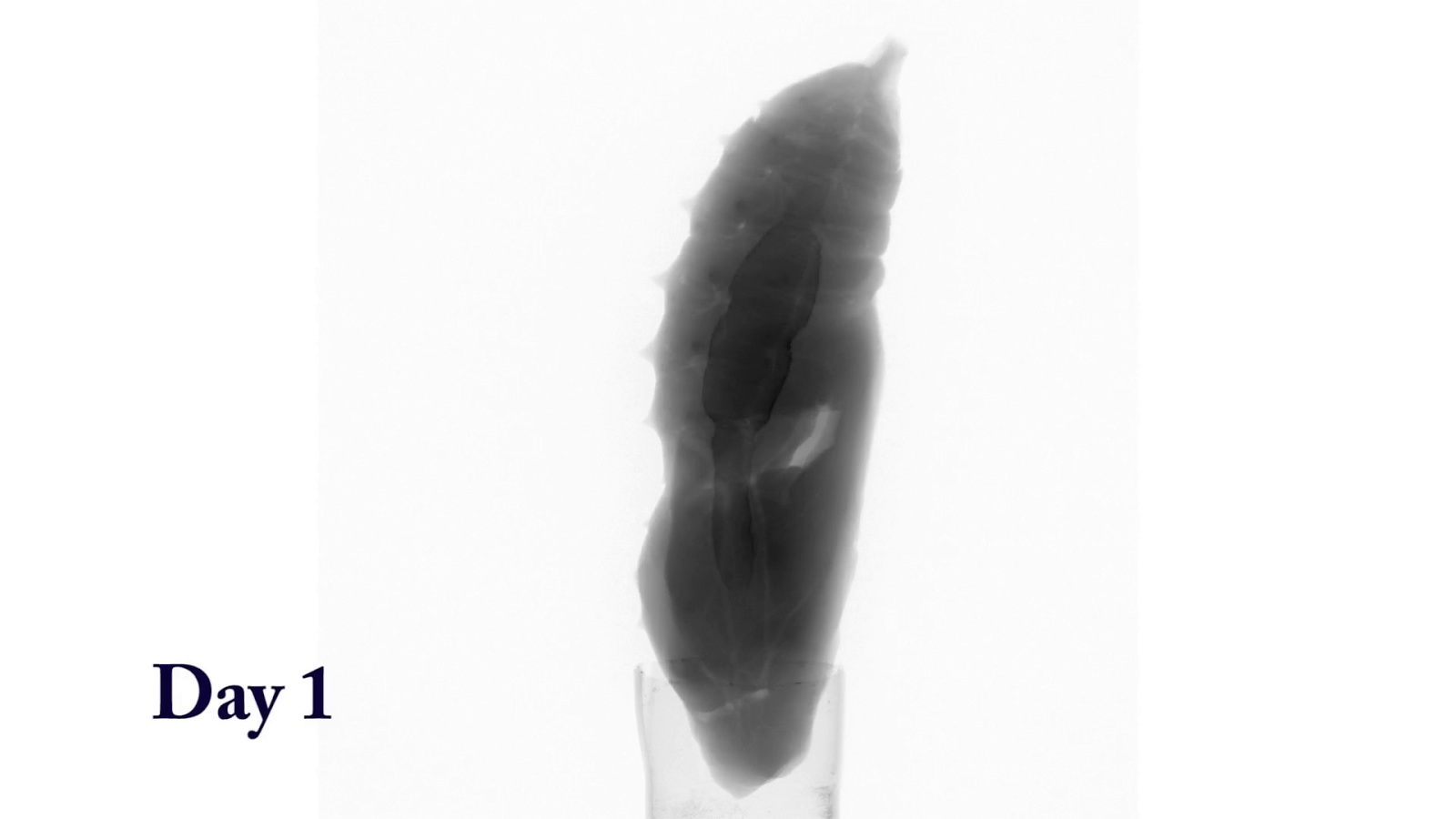
The team used CT scanning to capture the tiny anatomy of the pupa on its first day.
Fine detail
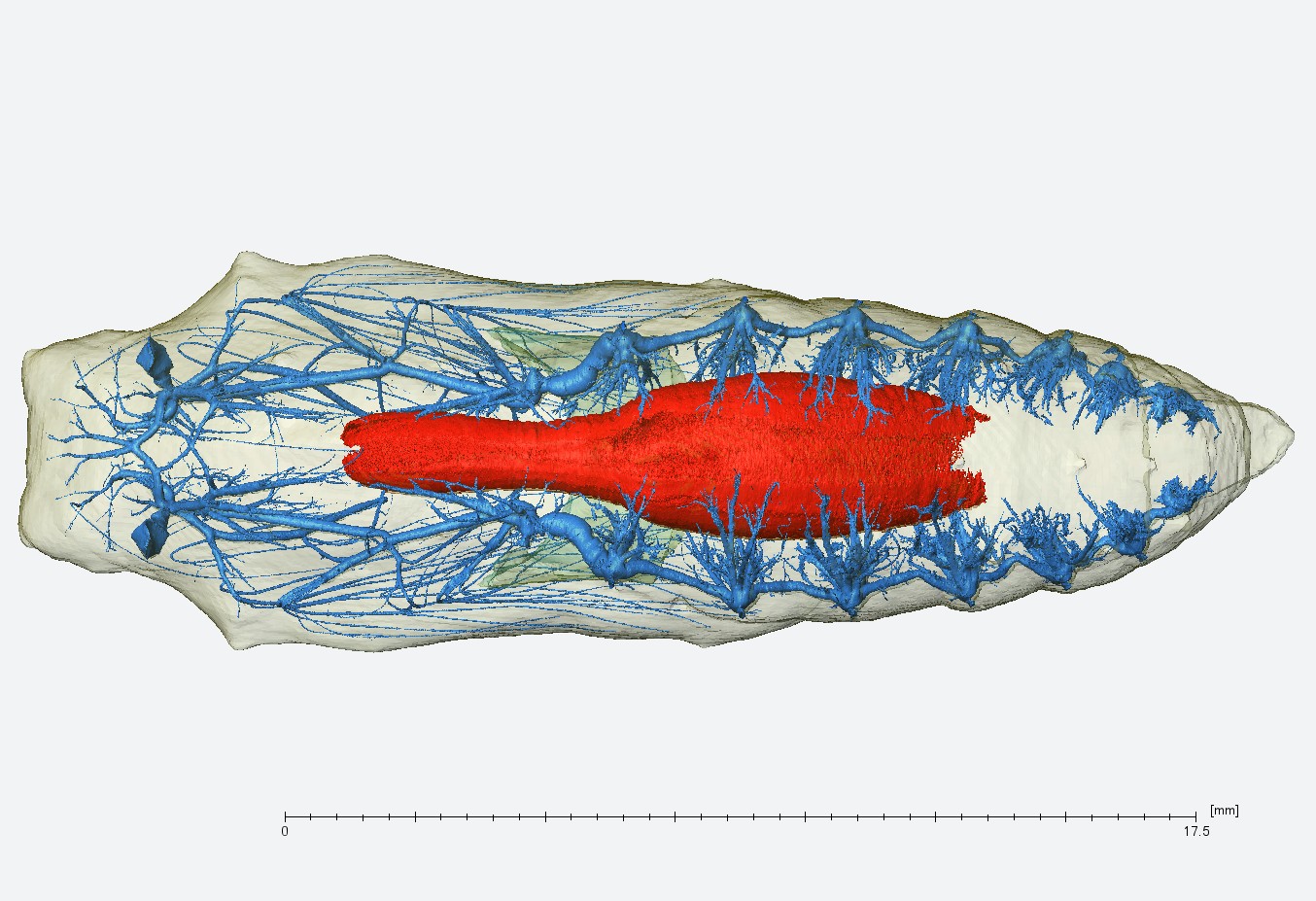
After a caterpillar transforms into a pupa, it begins another change inside the chrysalis, a hard outer shell. The CT scanning revealed that even at this early stage of metamorphosis, many respiratory airways (in blue) are well-developed.
Detailed developed
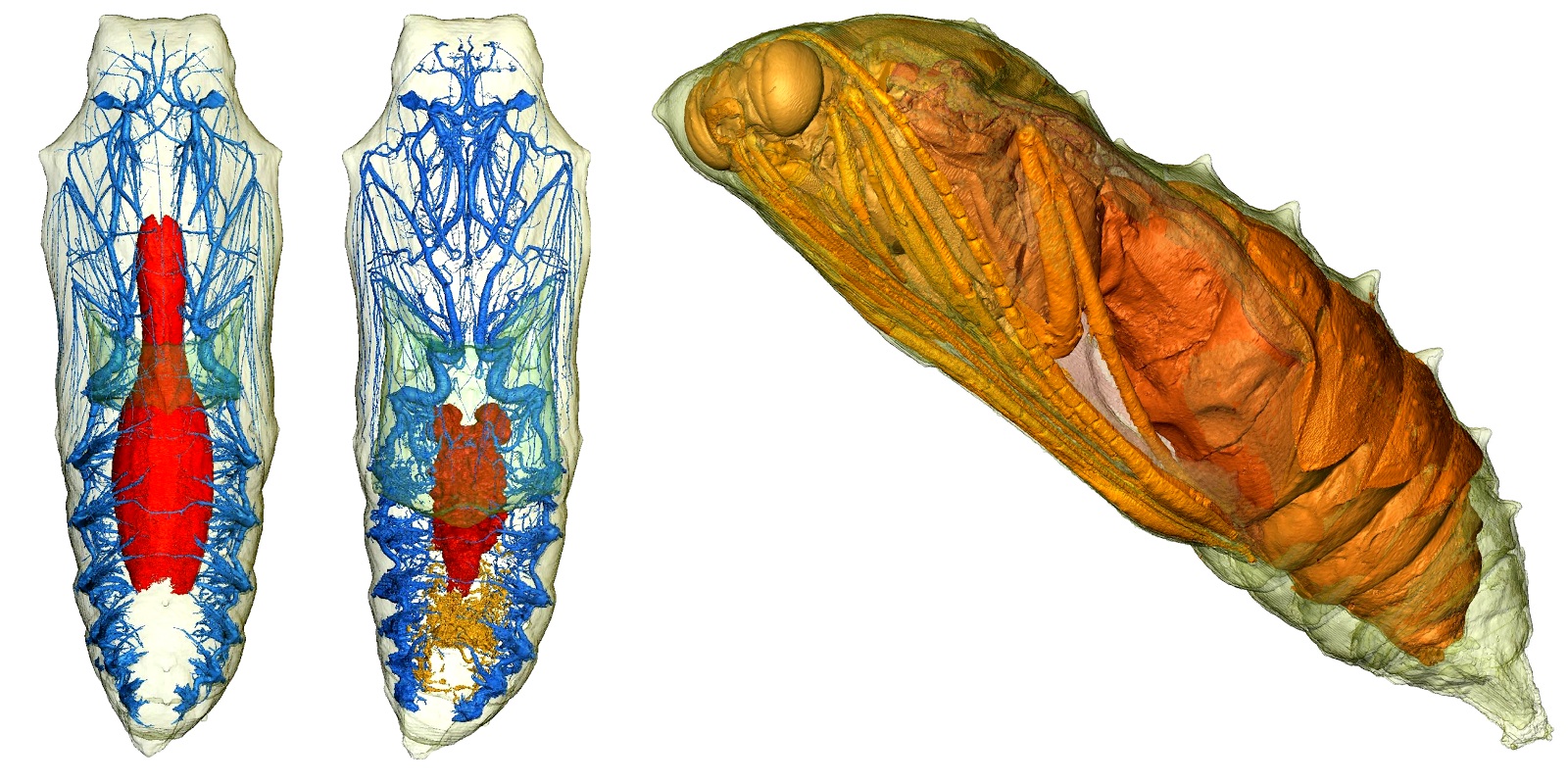
In the past, researchers wanting to study insect development would typically dissect a new insect at each stage of development, a timely and laborious process.
Almost there
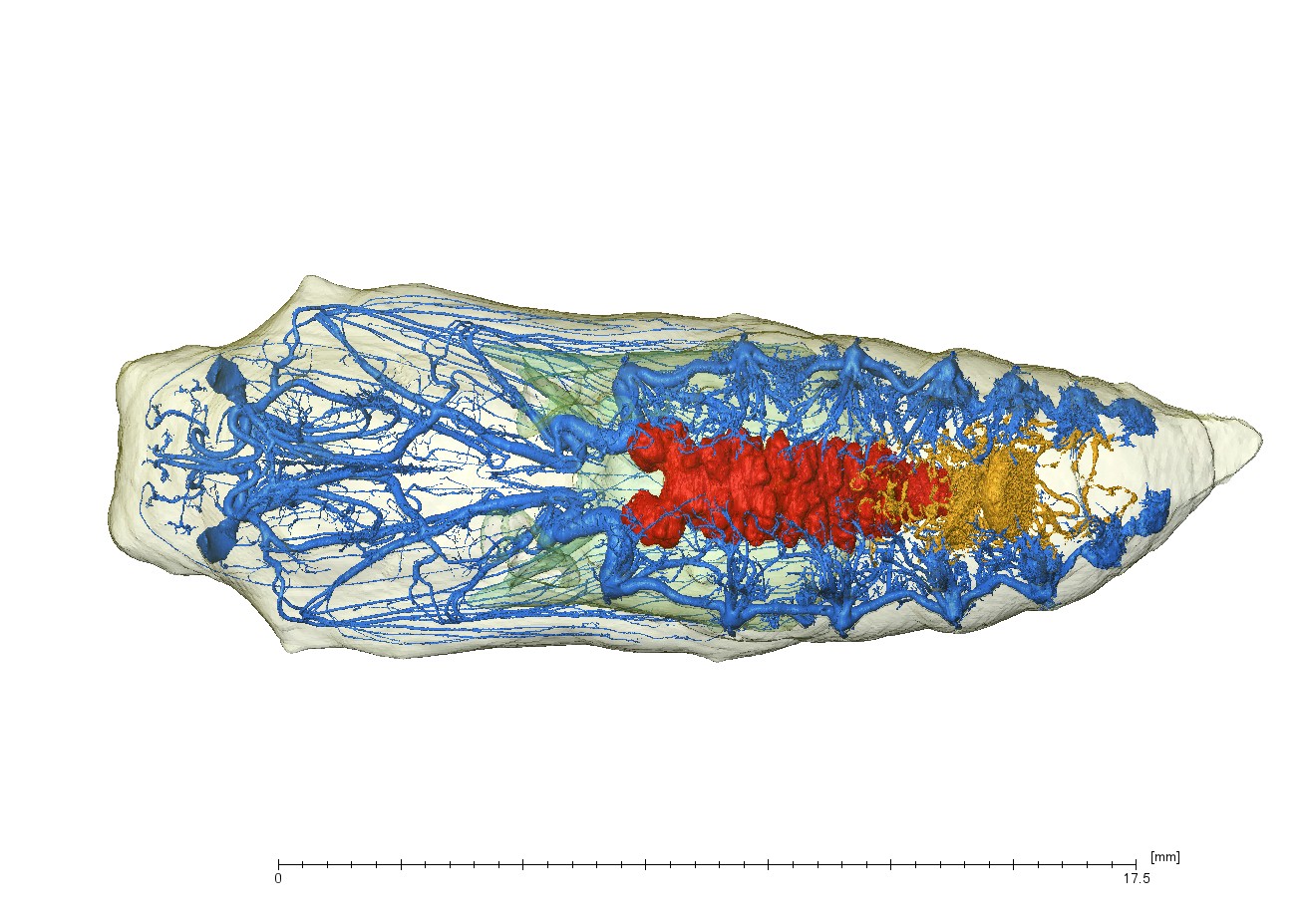
By day 13, many of the internal structures present in the butterfly are already in place. Here, tracheal system (blue), midgut (red), and waste tubules (orange) are clearly visible.
Transition

The new method can track the development of a single living organism throughout development. Over the course of two weeks, the team revealed the hidden changes occurring inside the chrysalisl.
Adult takes wing
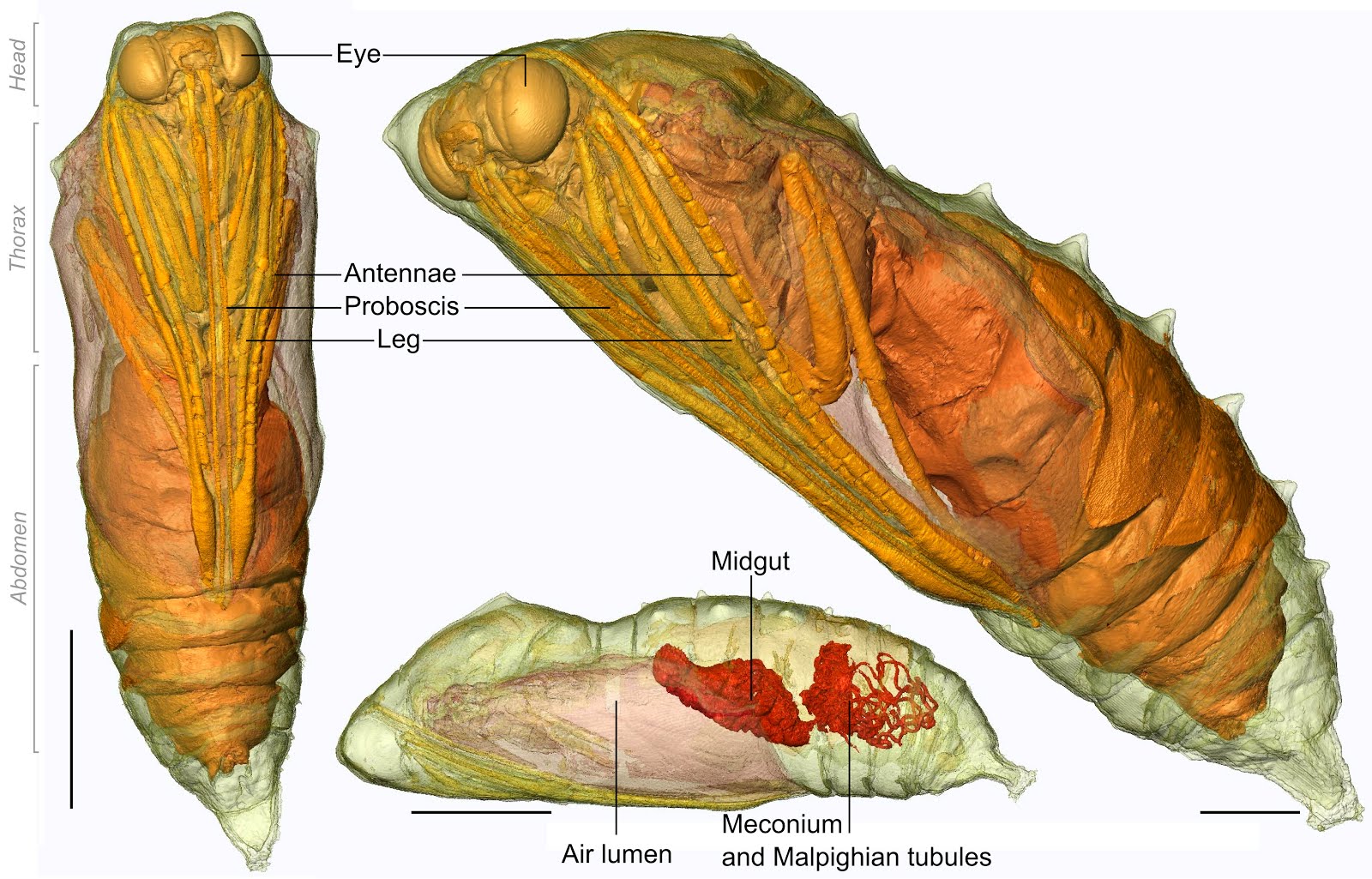
By the time the butterfly nears completion of metamorphosis, the eyes, gut structure and antennae are clearly visible in the scans.
Sign up for the Live Science daily newsletter now
Get the world’s most fascinating discoveries delivered straight to your inbox.
Transition
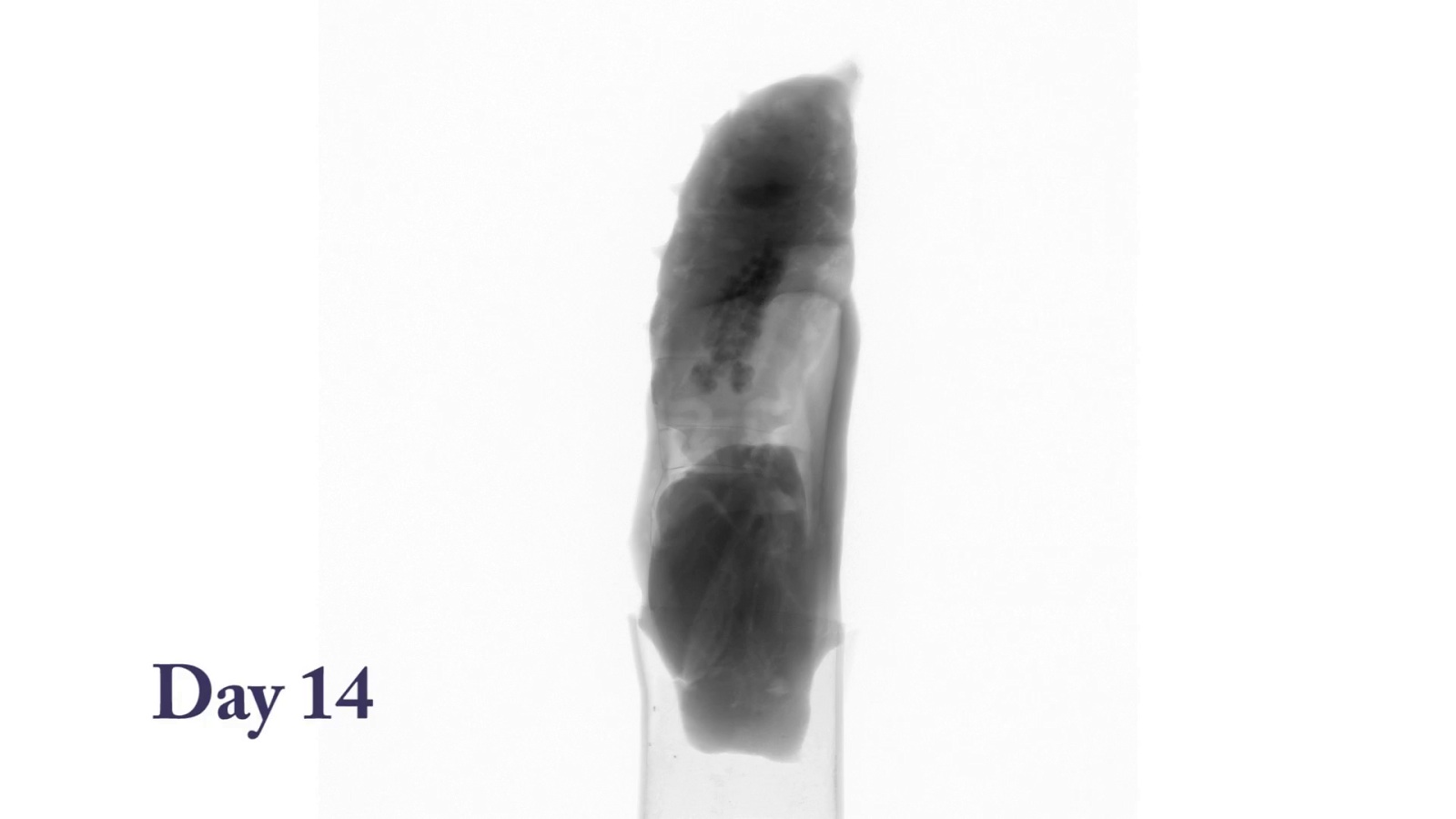
Radiographs of the chrysalis reveal a nearly-complete transition. The new technique could be used on other animals, such as bees and maggots, to study their development, the researchers say.

Tia is the managing editor and was previously a senior writer for Live Science. Her work has appeared in Scientific American, Wired.com and other outlets. She holds a master's degree in bioengineering from the University of Washington, a graduate certificate in science writing from UC Santa Cruz and a bachelor's degree in mechanical engineering from the University of Texas at Austin. Tia was part of a team at the Milwaukee Journal Sentinel that published the Empty Cradles series on preterm births, which won multiple awards, including the 2012 Casey Medal for Meritorious Journalism.









